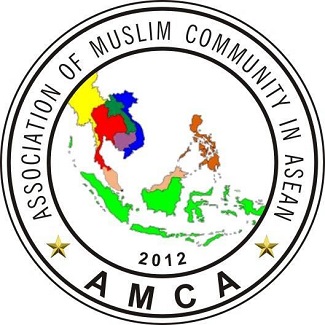Curriculum Development of Islamic Religious Education in the Digital Era Transformation
DOI:
https://doi.org/10.18196/jiee.v3i1.59Keywords:
Curriculum, Development, Digital EraAbstract
Information and communication technology development in the last few decades has transformed many aspects of human life, including education. Digital transformation has brought challenge and opportunity to education systems in the world. In Indonesia, Islamic education has a crucial role in building character and morals of the younger generation. The Islamic religious education curriculum is often considered less responsive to the dynamics of technological change. Digital transformation in Islamic education provides many opportunities to increase the efficiency, effectiveness and quality of Islamic education. Some of these opportunities are the use of technology in learning, data management and curriculum development. This research aims to describe curriculum development for Islamic religious education in the digital era. The study used a library research method, in this case author collected various literatures related to the topic of discussion, namely the Islamic Education curriculum in the digital era. The research aims to evaluate the effectiveness of implementing technological approaches in curriculum development. The results of this study indicate that technology integration in Islamic education can improve the quality of learning, if implemented with careful planning and proper support. The research also identified some challenges, such as the digital gap and lack of teacher training, and social cultural influence. The long-term goal of this research is to provide policy recommendations that can support the development of a more inclusive and effective technology-based curriculum.
Downloads
References
Amirudin, N. (2019). Problematika Pembelajaran Pendidikan Agama Islam di Era Digital. Prosiding Seminar Nasional Prodi PAI UMP.
Arifudin, O. (2022). Implementation Of Internal Quality Assurance System In Order To Improve The Quality Of Polytechnical Research. International Journal of Social Science, Education, Communication and Economics (SINOMICS JOURNAL), 1(3), 297–306.
Asiah, N., Harjoni, H., & Susanto, I. (2021). Inter-environmental collaboration to form students’ attitudes toward diversity. Tadris: Jurnal Keguruan Dan Ilmu Tarbiyah, 6(1), 29–40. https://doi.org/10.24042/tadris.v6i1.8594
Gafarurrozi, M. (2022). IRE Curriculum in the Digital Era (Concept, Design and Implementation). Ta'limDiniyah: Jurnal Pendidikan Agama Islam (Journal of Islamic Education Studies), 3(1), 76–95. https://doi.org/10.53515/tdjpai.v3i1.41
Hamalik, O. (2007). Manajeman Pengembangan Kurikulum, PT. Remaja Rosdakarya, Bandung.
Mahmud. (2011). Metode Penelitian Pendidikan. Pustaka Setia.
Nasser, A. A. (2021). Sistem Penerimaan Siswa Baru Berbasis Web Dalam Meningkatkan Mutu Siswa Di Era Pandemi. Biormatika: Jurnal Ilmiah Fakultas Keguruan Dan Ilmu Pendidikan, 7(1), 100–109. https://doi.org/10.35569/biormatika.v7i1.965
Noorzanah, N. (2017). Konsep Kurikulum dalam Pendidikan Islam. ITTIHAD, 15(28), 68–74.
Putra, Y. A. (2014). Pelaksanaan Evaluasi Pembelajaran Pendidikan Agama Islam Di Sekolah Menengah Atas Negeri 1 Kuantan Mudik Kabupaten Kuantan Singingi (Doctoral dissertation, Universitas Islam Negeri Sultan Syarif Kasim Riau).
Rodiyana, R., & Puspitasari, W. D. (2020). Perspektif Kurikulum IPS Sekolah Dasar Era Digital. In Prosiding Seminar Nasional Pendidikan (Vol. 2, pp. 817–833).
Sapan, A., Rusdi, M., Rizki, M. Y., Machsunah, Y. C., Zahruddin, A., & Purba, P. M. (2023). Pendidikan Karakter Sebagai Upaya Meminimalisir Pengaruh Negatif Teknologi Era Digital. Journal on Education, 6(1), 3162–3167. https://doi.org/10.31004/joe.v6i1.3363
Sitompul, B. (2022). Kompetensi guru dalam pembelajaran di era digital. Jurnal Pendidikan Tambusai, 6(3), 13953–13960. https://doi.org/10.31004/jptam.v6i3.4823
Sudirman, A., Alaydrus, S., Rosmayati, S., Syamsuriansyah, S., Nugroho, L., Arifudin, O., Hanika, I, M., Haerany, A., Rusmana, F. D., & Rijal, K. (2020). Prilaku konsumen dan perkembangannya di era digital. Bandung: Widina Bhakti Persada.
Sumarsono, S. (2021). Peran Massive Open Online Courses dalam Pendidikan Agama Islam di era digital. Ta’dibuna: Jurnal Pendidikan Islam, 10(1), 28–44. https://doi.org/10.32832/tadibuna.v10i1.3451
Syarnubi, S., Syarifuddin, A., & Sukirman, S. (2023). Curriculum Design for the Islamic Religious Education Study Program in the Era of the Industrial Revolution 4.0. Al-Ishlah: Jurnal Pendidikan, 15(4), 6333–6341. https://doi.org/10.35445/alishlah.v15i4.3421
Zaelani, Z., Junaidi, J., Muhammad, M., & Muhsinin, M. (2023). Transformasi Kurikulum Pendidikan Agama Islam Perkembangan Terkini dan Tantangan di Era Digital. Schemata: Jurnal Pasca Sarjana IAIN Mataram, 12(1), 67–80.
Downloads
Published
How to Cite
Issue
Section
License
Copyright (c) 2024 Journal of Islamic Education and Ethics

This work is licensed under a Creative Commons Attribution-ShareAlike 4.0 International License.





